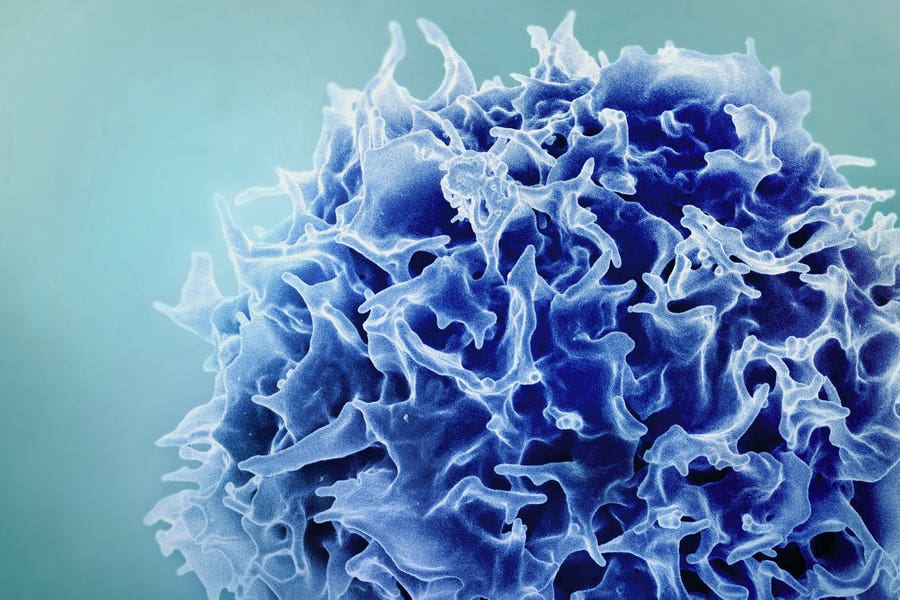This common virus could lead to Multiple Sclerosis, study finds
Discovery of the link between Epstein-Barr Virus and Multiple Sclerosis has huge implications for our understanding of autoimmune diseases

The Epstein-Barr Virus (EBV) is widely known for causing infectious mononucleosis, but its potential link to multiple sclerosis (MS) has intrigued scientists for years. A recent study published in PLOS Pathogens offers new insights into how EBV might contribute to the development of MS, suggesting a higher level of immune system misdirection, or cross-reactivity, than previously recognized.
Researchers at the University of Birmingham and the Karolinska Institute conducted an in-depth analysis of blood samples from individuals with multiple sclerosis, healthy people with EBV infection, and those recovering from glandular fever caused by recent EBV infection. This study is part of a global effort to decipher how EBV, a common virus, might lead to MS, building on two decades of research pointing to a connection between the two.
Immune System Cross-Reactivity
Traditionally, studies focused on how the immune system's antibody responses to the EBV protein, EBNA1, could mistakenly target proteins in the central nervous system. This new research, however, sheds light on the role of T-cells, another critical component of the immune system.
It reveals that T-cells targeting viral proteins can also recognize brain proteins, suggesting a broader and more complex cross-reactivity than previously understood.
Dr. Graham Taylor, associate professor at the University of Birmingham and co-author of the study, highlighted the significance of these findings:
“The discovery of the link between Epstein-Barr Virus and Multiple Sclerosis has huge implications for our understanding of autoimmune disease, but we are still beginning to reveal the mechanisms that are involved. Our latest study shows that following Epstein-Barr virus infection there is a great deal more immune system misdirection, or cross-reactivity, than previously thought.”
Related News
T-Cells in MS and Healthy Individuals
Another pivotal finding from the study was the presence of these cross-reactive T-cells not only in individuals with MS but also in healthy people. This discovery suggests that the mere presence of these T-cells is not sufficient to cause MS. Instead, the way these immune cells function might explain why some people develop MS after EBV infection while others do not.
Dr. Olivia Thomas from the Karolinska Institute, another co-author of the study, explained: “Our detection of cross-reactive T-cells in healthy individuals suggests that it may be the ability of these cells to access the brain that is important in MS.”
Implications for Understanding and Treatment
The findings of this study have two significant implications for understanding the EBV-MS connection. First, they strengthen the hypothesis that the link between EBV and MS is not merely due to uncontrolled viral infection. Instead, it seems to involve a more nuanced interaction between the immune system and viral proteins.
Second, the study reveals that the human immune system can cross-recognize a wider array of EBV and central nervous system proteins than previously thought. This suggests that MS could result from different patterns of cross-reactivity, which might vary among individuals.
“Knowing this will help identify which proteins are important in MS and may provide targets for future personalized therapies,” said Dr. Taylor.
Understanding these patterns of cross-reactivity is crucial as it could pave the way for new therapeutic strategies tailored to individual immune responses. This personalized approach might be the key to developing effective treatments for MS, potentially targeting specific proteins involved in the disease process.
The Complexity of the EBV-MS Relationship
The relationship between EBV and MS is proving to be more complex than ever. While previous research primarily focused on antibodies, this study's emphasis on T-cells adds a new dimension to our understanding. It underscores the importance of continuing to explore how these immune cells interact with both viral and brain proteins.
“Although our work shows the relationship between EBV and MS is now more complex than ever, it is important to know how far this cross-reactivity extends to fully understand the link between them,” said Dr. Thomas.
As scientists delve deeper into the mechanisms behind this cross-reactivity, we inch closer to unraveling the mystery of how EBV might trigger multiple sclerosis. The insights gained from this research could ultimately lead to breakthroughs in preventing and treating this debilitating disease.
By uncovering the broader scope of immune system cross-reactivity, researchers are paving the way for more targeted and personalized therapies that could significantly impact the lives of those affected by this complex disease.
What are the symptoms of Epstein-Barr virus?
According to the Mayo Clinic, symptoms range in severity for each person diagnosed with Epstein-Barr virus. Symptoms include:
Sore throat and throat inflammation (swelling).
Fatigue or feeling extremely tired.
Fever.
Swollen lymph nodes (a bean-shaped organ in your neck).
Rashes on your skin.
Enlarged spleen and liver.
Children diagnosed with Epstein-Barr virus either don’t show symptoms or their symptoms are similar to short-term illnesses like a cold or the flu. Teenagers or adults who get the virus may show symptoms between two to four weeks, but symptoms could linger for months, especially fatigue.
Do symptoms of Epstein-Barr virus reactivate?
According to the Mayo Clinic, once you get Epstein-Barr virus, the infection deactivates (latent) or goes to sleep. The infection could wake up (reactivate), especially if you have a weakened immune system. Sometimes the virus does not cause symptoms in the host but it is still contagious to others.
Symptoms and risk factors can vary in severity and may overlap with other conditions, so it's important to consult a healthcare professional for proper diagnosis and treatment.
For more science and technology stories check out our New Discoveries section at The Brighter Side of News.
Note: Materials provided above by The Brighter Side of News. Content may be edited for style and length.
Like these kind of feel good stories? Get the Brighter Side of News' newsletter.



